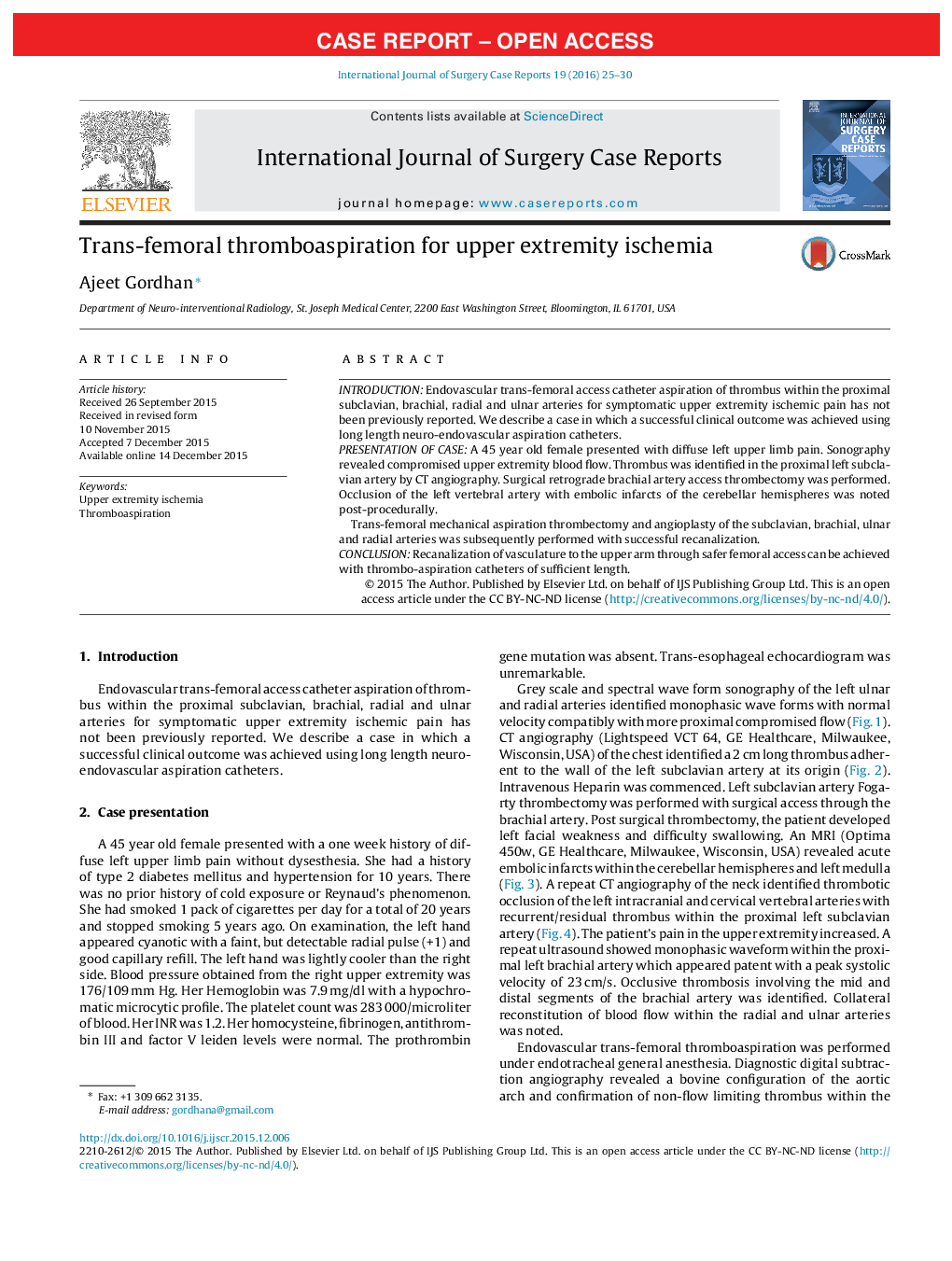| Article ID | Journal | Published Year | Pages | File Type |
|---|---|---|---|---|
| 4288719 | International Journal of Surgery Case Reports | 2016 | 6 Pages |
•Trans-femoral aspiration of thrombus in upper extremity ischemia is feasible.•Cerebral infarction is a significant complication of surgical embolectomy.•Conservative management results in poor functional outcomes.
IntroductionEndovascular trans-femoral access catheter aspiration of thrombus within the proximal subclavian, brachial, radial and ulnar arteries for symptomatic upper extremity ischemic pain has not been previously reported. We describe a case in which a successful clinical outcome was achieved using long length neuro-endovascular aspiration catheters.Presentation of caseA 45 year old female presented with diffuse left upper limb pain. Sonography revealed compromised upper extremity blood flow. Thrombus was identified in the proximal left subclavian artery by CT angiography. Surgical retrograde brachial artery access thrombectomy was performed. Occlusion of the left vertebral artery with embolic infarcts of the cerebellar hemispheres was noted post-procedurally.Trans-femoral mechanical aspiration thrombectomy and angioplasty of the subclavian, brachial, ulnar and radial arteries was subsequently performed with successful recanalization.ConclusionRecanalization of vasculature to the upper arm through safer femoral access can be achieved with thrombo-aspiration catheters of sufficient length.
